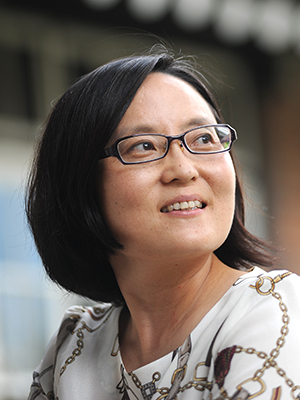 Sexuality has become a major issue in public politics in South Korea, where the MeToo movement has emerged, as elsewhere. Anthropologist Hyun Mee Kim of Yonsei University will take on this topic February 7, 2019, when the Center for Korean Studies presents its tenth Forum on Critical Issues in Korean Studies.
Sexuality has become a major issue in public politics in South Korea, where the MeToo movement has emerged, as elsewhere. Anthropologist Hyun Mee Kim of Yonsei University will take on this topic February 7, 2019, when the Center for Korean Studies presents its tenth Forum on Critical Issues in Korean Studies.
In her lecture–titled “Sexuality and Public Politics: Temporal Contingency of the #MeToo Movement in Contemporary South Korea”–Kim will analyze the “temporal aspect” of why Korea’s Me Too movement has spread since 2017. She will examine the movement in the context of the failure of the “state feminism” of the conservative regime and the moral failure of the progressive wing over the years as seen in former Governor Ahn Hee-jung’s sexual violence case.
Kim will stress how “everyday feminism” is transforming the meaning of democracy through the development of the dynamic tensions between the private and the public. Her presentation begins at 4:00 p.m. in the Center for Korean Studies auditorium.
Hyun Mee Kim is a professor of cultural anthropology at Yonsei University. Her research interests center on gender and labor, migration and multiculturalism, feminist cultural theories, urban youth, and inter-Asia cultural studies. Kim earned her Ph.D. in sociocultural anthropology at the University of Washington in 1995. She is the author of two books—We All Left Home: Living in South Korea as Migrants (2014, in Korean) and Cultural Translation in a Global Era (2005, in Korean)–as well as numerous articles and book chapters.
The Forum on Critical Issues in Korean Studies was inaugurated in 2010 to bring outstanding scholars from around the world to the University of Hawai‘i Mānoa campus for discussions of important contemporary topics related to Korea. The Forum is free and open to the public.
For further information, including information regarding access for the handicapped, telephone the Center for Korean Studies at (808) 956-7041. This presentation is supported by the Doo Wook and Helen Nahm Choy Fund. The University of Hawai‘i is an equal opportunity/affirmative action institution.
